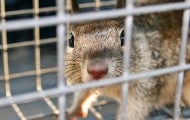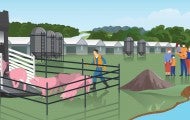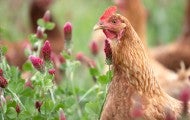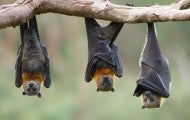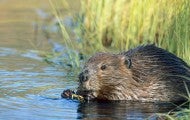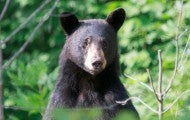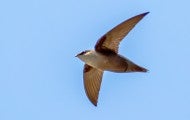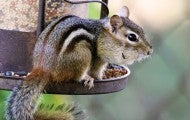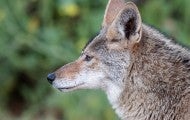Rochester Institute of Technology has committed to having 50% plant-based offerings on menus by 2025, in collaboration with the Humane Society of the United States. As part of this effort, HSUS chefs provided an in-person plant-based culinary training to the university culinary staff. These events...
A raccoon in the chimney, a groundhog under the shed, a skunk under the back porch … when confronted with wildlife living up-close in their own homes or backyards, well-meaning but harried homeowners often resort to what they see as the most humane solution—live-trapping the animal and then setting...
Imagine a chicken. Picture her downy white feathers and small, intense eyes. Maybe she’s sitting on a nest, softly clucking. Perhaps she’s scratching in the dirt, a quaint red barn in silhouette behind her. Cows graze contentedly nearby; a pig snuffles in the mud. It’s an idyllic vision, familiar...
The Humane Society of the United States has released its annual Protein Sustainability Scorecard, which assesses the efforts of top U.S. food service companies to reduce their impact on the environment and animals through purchasing and menuing practices. The companies included in this report are...
The Humane Society of the United States is thrilled to announce that UCLA has committed to transition 50% of entrees served on campus to plant-based options by 2027. This goal will be supported by the HSUS’ Food Service Innovation team, which works with many of the largest food service management...
DAYTON, Ohio—The University of Dayton, Ohio’s largest private university, has exceeded its plant-based menu goal by surpassing its 2025 goal by 10%. The institution is solidifying its reputation in sustainability by consistently serving over 40% plant-based entrees. In 2021, the University of Dayton...
Beavers are making a comeback. Nearly driven to extinction by the fur trade, nature’s best architects are now 6–12 million strong in the United States. This return will provide significant benefits to our country’s ecology, which has lost much of its wetlands to development and agriculture. Learn...
As black bear numbers increase in some North American communities and more people move into bear habitat, encounters between bears and people have risen. Whether you live in bear country or are just visiting, you can take simple steps to avoid conflicts. Learn More About Bears (Please note that this...
Rounding up and killing entire flocks of geese has become an all-too-common (and temporary) fix in many communities. Besides being inhumane, this also leaves room for a new flock to just move right in. Geese shouldn’t be killed for doing what comes naturally, especially when long-term, effective and...
Once robust, populations of cougars (also known as mountain lions or pumas) have declined drastically across most of their range in the Americas. The population decline is due to the impact of extensive hunting and predator control, in addition to continued habitat loss and fragmentation. Cougars...
If you spot a coyote in your neighborhood, relax: Most coyotes avoid people. “Seeing a coyote out during the day is not a cause for alarm, especially in the spring and summer when they’re out looking for food for their pups,” says Lynsey White, HSUS director of humane wildlife conflict resolution...
